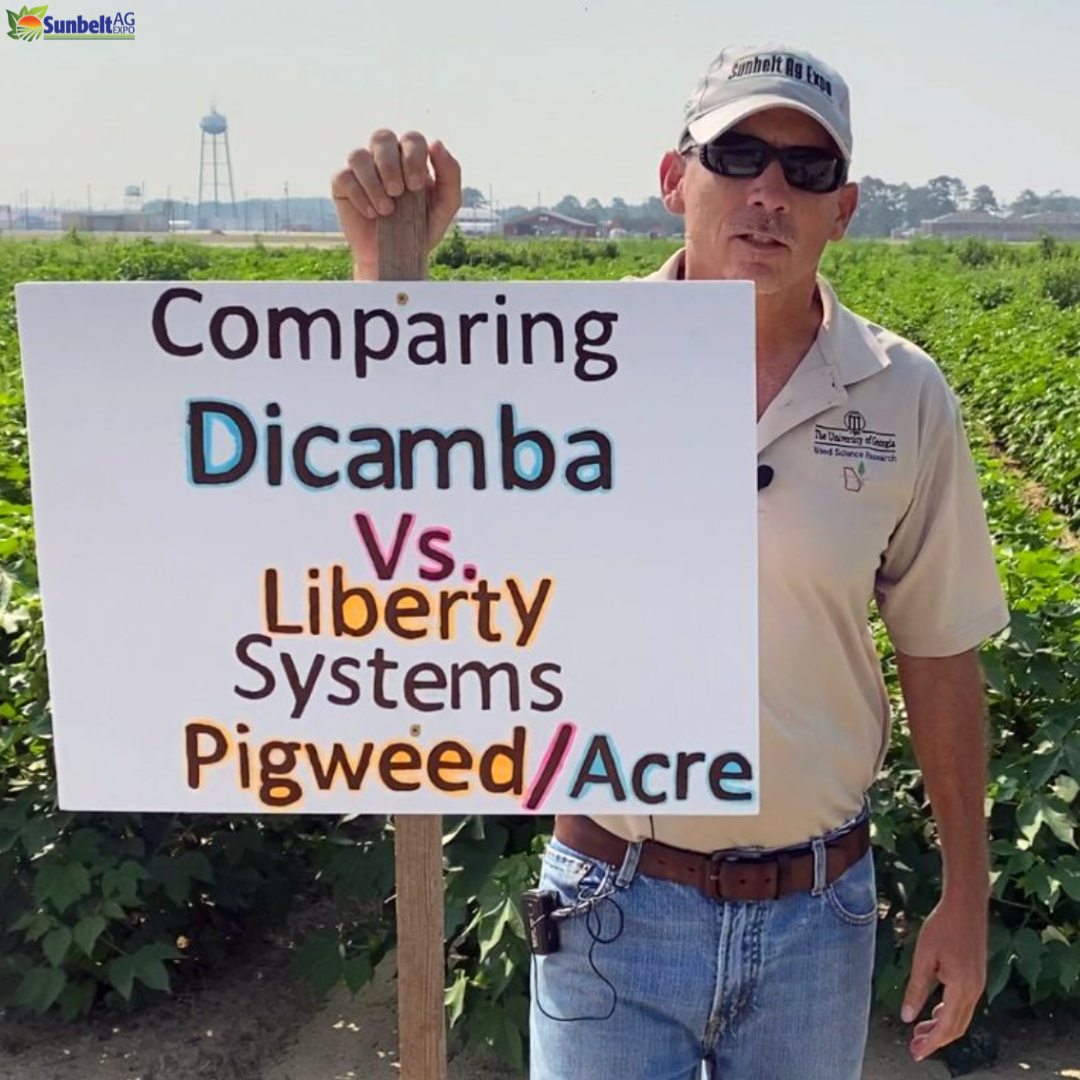By Brad Haire
For the past few years at the Sunbelt Ag Expo, University of Georgia Extension weed specialist Stanley Culpepper, and team have evaluated the WeedOut program, particularly looking at how the novel system might fit into a cotton production system.
Culpepper and his team, along with other UGA Extension specialists and industry agronomists annually on the 600-acre Sunbelt Ag Expo Darrell Williams Research Farm, one of the region’s top locations to find useful, cutting-edge solutions for row crop and forage farmers.
WeedOut, an Israeli-based company, created a way to reduce Palmar amaranth in fields by irradiating its pollen to sterilize it, resulting in nonviable seed and reducing the pigweed seed bank in fields over time.
In the 2.5-acre WeedOut cotton plot, on about every ninth row, some pigweed were allowed to escape chemical or handweeding control.
“And what we are doing is bringing in eradiated for the females. We treat pigweed with pollen to try and reduce or eliminate the viability of the seed. The goal of the project is to get rid of the seed production of these female palmer amaranth plants through the use of pollen. It’s really fascinating and we can see if we can reduce the seed bank and win the war over time,” he said. “The technology shows promise as another tool to help our growers continue to manage Palmer amaranth, which remains our No. 1 economically challenging weed. But it will just be another tool. We must continue a complete systems approach to managing weeds,” he said. “There is no silver bullet for that.”
During the field day, Culpepper discussed other research, including:
- Defining the value of residual herbicides and the time interval between sequential POST application for the control of Palmer amaranth and annual grasses in cotton.
- Comparing timely and delayed Liberty + Roundup and Roundup + dicamba systems for the control of Palmer amaranth and annual grasses in cotton.
- And Alite 27, a new, HPPD pre-emergence herbicide from BASF for Axant Flex cotton technology, which also allows the use of GlyTol, LibertyLink and XtendFlex tools.
“The concept of a weed management program, even in a year like 2023, where the weather from planting to layby wasn’t very cooperative, does not change. The individual components of the program may change, but the program must remain sound,”
“The Expo farm is my largest research site in Georgia and an important location for our research program for cotton growers across the state,” said Culpepper, who has conducted research at the Expo farm for two decades.
“Weed management across Georgia’s cropping systems are dynamic and changing constantly as a result of herbicide resistance, regulatory challenges and the constant evolution of troublesome weed species such as Palmer amaranth, tropical spiderwort, morningglories and annual grasses. Our projects at the Sunbelt Expo are equally dynamic and diverse to help find workable solutions for our growers,” Culpepper said.
The 2023 Sunbelt Ag Expo Field Day will be July 20 starting at 8 a.m. in Moultrie, Ga.

